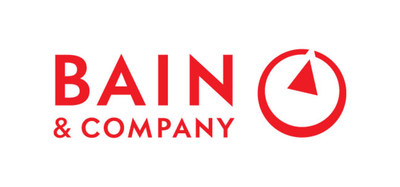The report identifies ways publishers and developers can capture market share
- Global revenue for games could grow by more than 50% over the next five years, according to new research by Bain & Company . Research shows that industry growth is being accelerated by heavy engagement of younger gamers (ages 13 to 17) who spend about 40% more time in video game environments than with any other form of media. Yet, the supply of top talent isn't keeping pace with demand, an imbalance that is set to worsen as gaming studios lose developers to big technology firms. Bain is encouraging game developers and publishers to prioritize certain areas for success as gaming becomes a foundation for both media, and nonmedia, experiences.
"Though gamers have historically trended younger, our data suggests fewer gamers are aging out," said Andre James , global head of Bain's Media and Entertainment practice. "This shift in behavior brings challenges, as well as opportunities, for game developers and publishers who are faced with increasing consumer demands within virtual and nonvirtual environments. Our research shows that there are three trends that are changing the industry, as well as four areas gaming studios should prioritize to ensure success."
Three Trends that are Changing Gaming
According to Bain, the gaming industry has obtained more than $240 billion in investments just since 2019. Compared with slightly older gamers (18 to 34 years), younger gamers are more comfortable in virtual environments, and just over half of the ones surveyed by Bain say they prefer hanging out with friends in a game, rather than in person. Bain says there are three industry trends that are contributing to these changes:
- Technological Advancements: Increased processing power and reduced latency are enabling developers to create larger virtual worlds that run on any device. Advancements in game engines are becoming a key development platform for other entertainment experiences, and improvements in 3-D graphics may transfer to applications beyond just the gaming industry.
- Metaverse-style Experiences: Consumers are hungry for more immersive virtual environments, giving technology and media companies an opportunity to hold players' engagement across various experiences. Live virtual events, e-sports, and socializing are already part of the mix.
- New Monetization Models: At 78% of games' revenue, the free-to-play model itself has advanced with ad-operated becoming more accepted on mobile, and in-app purchases becoming more differentiated. The economics of free-to-play are likely to further explode as virtual-world games become a foundation for the numerous other monetizable experiences. More games are also using blockchain technology to enable ownership of characters and accessories.
Meeting Rising Expectations By Investors and Consumers
To make the most of the above trends, Bain is encouraging game developers and publishers to pay close attention to four areas that will differentiate future winners within the industry. These areas include:
- Scaling: Large, virtual-world games are expensive to build, heading toward a price tag of $1 billion by 2027. To recoup operational costs, game companies can scale by investing in platform technology, or through partnerships. Deal activity in the gaming sector is on the rise, with gaming software and financial investments being the fastest-growing segments. Companies will need to expand their M&A skills.
- Ensuring Good Franchise Management: It's more important than ever to develop meaningful and compelling intellectual property (IP). Most gaming companies need to gain experience in strategically managing a franchise across genres, technologies, and regions. Good franchise management puts the fan at the center of decisions.
- Enhancing Customer Engagement: As the uses of the metaverse expand and reach scale, players will need to be taken on journeys beyond just the game. Customers will expect the ability to move seamlessly between game play, socializing, and commerce, in physical and virtual worlds. Companies need to establish a proactive approach to building community.
- Investing in Top Talent: Most video game company executives surveyed by Bain cited talent as their No. 1 priority; yet, tech and video game companies are losing developers to big tech firms, whereas big tech companies pay about 20% more. Simply paying talent won't be enough. Companies will need to develop more thoughtful talent strategies around recruitment, onboarding and training, to attract and retain the right talent.
"This is the moment for game companies to bet big and advance to the next level," said Anders Christofferson , partner within Bain's Media and Entertainment practice. "Developers and publishers will need to sharpen their focus if they want to continue to thrive in an environment that's becoming a greater part of our daily lives."
Media Contact: For any questions or to arrange an interview, please contact Amanda Folsom at amanda.folsom@bain.com
About Bain & Company
Bain & Company is a global consultancy that helps the world's most ambitious change makers define the future.
Across 64 cities in 39 countries, we work alongside our clients as one team with a shared ambition to achieve extraordinary results, outperform the competition, and redefine industries. We complement our tailored, integrated expertise with a vibrant ecosystem of digital innovators to deliver better, faster, and more enduring outcomes. Our 10-year commitment to invest more than $1 billion in pro bono services brings our talent, expertise, and insight to organizations tackling today's urgent challenges in education, racial equity, social justice, economic development, and the environment. Since our founding in 1973, we have measured our success by the success of our clients, and we proudly maintain the highest level of client advocacy in the industry.
Media Contact:
Amanda Folsom
Bain & Company
Amanda.folsom@bain.com
![]() View original content to download multimedia: https://www.prnewswire.com/news-releases/new-bain--company-research-finds-global-revenue-for-games-could-grow-by-more-than-50-over-the-next-five-years-301648703.html
View original content to download multimedia: https://www.prnewswire.com/news-releases/new-bain--company-research-finds-global-revenue-for-games-could-grow-by-more-than-50-over-the-next-five-years-301648703.html
SOURCE Bain & Company



